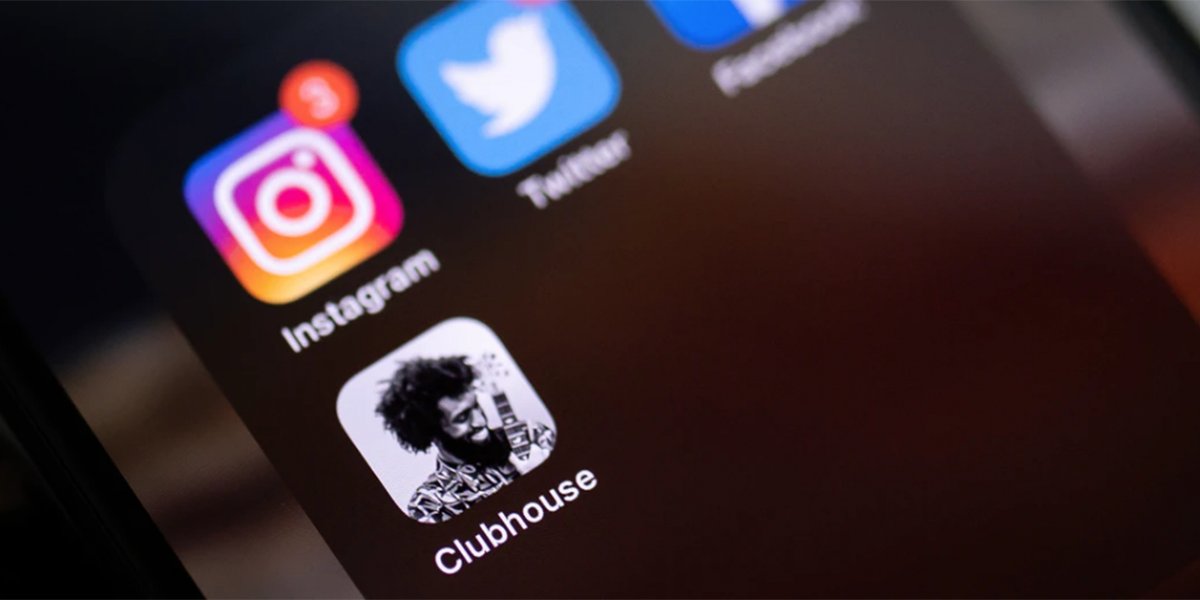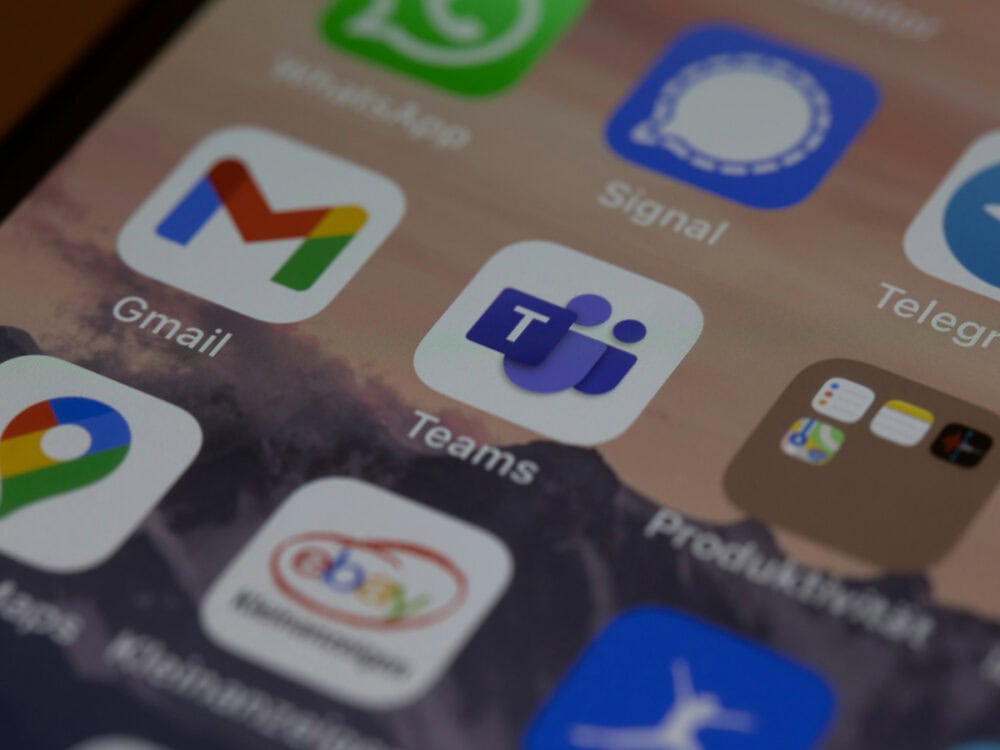10 questions and answers about Clubhouse: What can the app do - and is it suitable for business?
Everyone is talking about the booming audio app - at least in the marketing and communications industry - and people are busy experimenting with it. Is Clubhouse a media revolution or just a fleeting hype?
Are clubrooms merely a temporary, pandemic-related substitute for meetings and discussions in the physical world? Will it all be over soon - or does Clubhouse offer great opportunities for new business models and use in marketing, advertising or even sales? Ten questions and ten answers about Clubhouse, on which we also asked local experts for their opinions.
1. what is Clubhouse?
Clubhouse is an audio app where people meet to talk to each other. You can only get in by invitation - each Clubhouse user can invite two others. The app is currently only available for the iOS operating system. If you don't have an iPhone, you'll have to be patient until the Android version is released.
2. who owns the platform?
Clubhouse was developed by the two ex-Google employees Paul Davison and Rohan Seth with their start-up Alpha Exploration. Venture capitalists such as Andreessen-Horowitz invested and made it big.
3. who uses Clubhouse?
Co-inventor and operator Paul Davison speaks of two million active users per week. According to unofficial analyses, a total of six million users have already registered. In the German-speaking club rooms, it is mainly representatives from marketing, media, communication and techies who can be found - and disproportionately often politicians and celebrities.
4 How does Clubhouse work?
Anyone can start a club room and invite other users to join. Anyone who wants to join the discussion can signal this by raising their hand virtually and will then be "promoted" by the moderator as a listener to a discussion participant in the upper field. Clubhouse has neither a (text) chat nor a video function.
5. what is talked about on Clubhouse?
The spectrum ranges from trivial small talk to very specific technical discussions between experts. Discussion rounds with celebrities are strong magnets. When Facebook founder Mark Zuckerberg spoke in a club room at the beginning of February, over 5,000 users attended. Celebrities such as Elon Musk, Oprah Winfrey, Drake and Paris Hilton also talk to "normal people" on Clubhouse.
6 Is Clubhouse just a momentary hype or a media revolution? Will the app catch on with the masses?
Janosch Tröhler, Head of Community at Blick.ch, says: "Difficult to assess. The app comes at the perfect moment - in the middle of the pandemic. People have a desire for social interaction. The voice is far more personal and emotional than writing. The question is whether that will be enough when life returns to normal. But for the app to reach the masses at all, it needs Android support."
Nico Leuenberger, founder of Podcast-Schmiede and Co-President of Podcast Club Switzerland: "Clubhouse is a lot of hype at the moment, but it has the potential to stick around for the long term. When I see how much time people spend in the app every day, I notice a great need for this kind of exchange. The concept is likely to catch on. Of course, there is a risk that Facebook and Twitter will steal the feature and Clubhouse will suffer the Snapchat fate."
7. does Clubhouse have potential for business use and new business models in marketing or media?
In the current terms of use, Clubhouse prohibits any commercial use. But perhaps this restriction can be elegantly circumvented, and perhaps the operators will relax it? Do our experts see business potential in Clubhouse?
Janosch Tröhler is convinced, as he says: "Definitely. Apparently, a kind of micro-payment is to be introduced, meaning you will have to pay for certain talks in future. This is of course exciting for experts in many fields. For the media industry, Clubhouse has the potential to communicate with users at a low threshold, show the people behind the products and create transparency. At the same time, you can organize talks with little effort. We have already experimented with Blick and will continue to do so. The important thing is that Clubhouse is not about reach, but about a deeper relationship with the community. What we are still missing is a good option for secondary use, for example as a podcast."
Nico Leuenberger says: "Media are already using Clubhouse, for example SRF with #Rundumfunk: SRF personalities have exchanged ideas with the audience. The app is perfect for this! In marketing for a direct exchange with customers. Clubhouse is guaranteed to offer monetization opportunities for influential personalities, sooner or later. And the tool is great for networking, so it's useful for business."
8 What hurdles still stand in the way?
There are major concerns about data protection and security, partly because users are forced to enter their entire address book into the app.
Roger Hämmerli, Managing Director of the digital content newsroom "Andy Was Right", is less euphoric about Clubhouse's chances. "The app requires the user's full attention - so the podcast comparison falls flat. If you want to actively participate in the discussions, you can't do it on the side," says Hämmerli. "So far, it's mainly the marketing and communication bubble that has been active on Clubhouse. The average consumer in German-speaking countries is not as extroverted as Americans, for example, who are much more willing to engage in free and spontaneous discussions.
Talks without a topic can quickly become tiring and top panels are difficult to organize. Sure, it's a hit when Thomas Gottschalk, Sigmar Gabriel and Kai Diekmann talk about Joe Biden's inauguration, but such rooms are a rarity and you've soon heard the hundredth Q&A room.
Consuming content in this way will catch on. I'm not so sure about Clubhouse as an app in our region."
9. is Clubhouse a competitor to podcasts?
Podcast professional Nico Leuenberger sees Clubhouse more as a supplement and explains: "The biggest difference is of course the live character. It's very attractive, but also somewhat impractical because exciting discussions can't be listened to. Podcasts can benefit from Clubhouse because Clubhouse establishes listening even more strongly."
10. is the increased use of audio in general a megatrend?
Leuenberger is convinced of this. "Audio has been booming for several years. And Clubhouse is proving that this boom is set to continue," he explains. "Especially in this hectic world full of screens, there is something very relaxing about simply being able to listen. Focusing on just one sense creates closeness and authenticity. Podcasts, Clubhouse and perhaps soon Twitter with the revived audio feature, which was once tested, will continue to grow. And anyone can join in."









